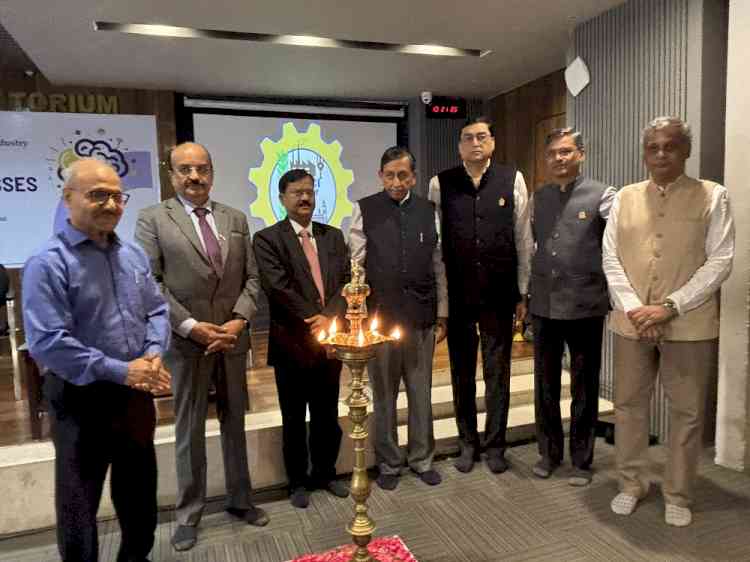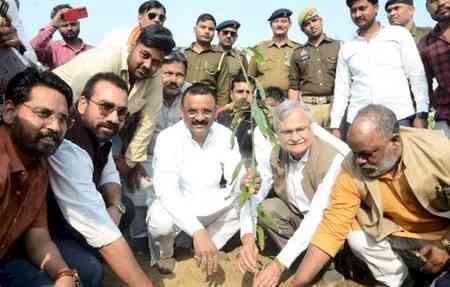OPDPA lauds govt announcement for oil palm industry
Years of efforts in making these demands for the benefit of the farmer, industry, and economy come to fruition: Sanjay Goenka, President - Oil Palm Developers & Processors Association (OPDPA)

Hyderabad, August 18, 2021: OPDPA (The Oil Palm Developers and Processors Association), the Nodal Agency for Oil Palm Cultivation in India, has today lauded the landmark reforms by the Government of India on the promotion of Oil Palm in India. OPDPA congratulated the Prime Minister and the government on meeting all its demands to bring far-reaching benefits not only for the farmers but also to the economy in line with the Atmanirbharta vision. It took multiple efforts to ensure the required promotion of the Oil Palm which offers multiple benefits to the country. The industry which is capable of making India self-reliant in its edible oil requirement, could additionally enhance the income of the farmers and save precious forex for the exchequer due to high dependency on the imports.
The announcement by the Government of India included
• Approval for INR 11,040 crore National Mission on Edible Oils-Oil Palm to boost palm oil production in India and reduce dependence on expensive imports from South East Asia; Government of India’s share will be INR 8,844 crore and INR 2,196 crore as State share
• The Government of India will give a price assurance to the oil palm farmers for the Fresh Fruit Bunches. Centre to develop a mechanism to fix and regulate FFB prices (MSP), considering the annual average Crude Palm Oil price of last 5 years. This will protect the farmers from the fluctuations of the international CPO prices and protect him from the price volatility and guarantee the farmer even if the prices go down; farmer would know in advance how much income he can expect by cultivating oil palm plantation
• Special focus on the northeast region and the Andaman and Nicobar Islands; INR 70.45 crore for revival of North-East Agri-Marketing Corporation; ensures better price to the farmer and 3,300 employment; to implement various innovative plans like providing better farming facilities, training to farmers in clusters, organic seeds and fertilizer, post-harvesting facilities
• Capital assistance of INR 5 Cr to the North-East and Andamans to attract the industry to these regions.
o Substantially increase in the assistance of inputs/interventions INR 12,000 to INR 29,000 per hectare to the farmers
o Assistance for seed gardens for 15 hec of INR 80 Lacs for rest of India and INR 1 Crore for North East and Andaman & Nicobar islands
• The endeavour is towards increasing the Oil Palm cultivation from 3.5 lac hec currently to 10 Lac hec by 2025-26 and the production of Crude Palm Oil is expected to go upto 11.20 lakh tonnes by 2025-26 and upto 28 lakh tonnes by 2029-30
Commenting on the Cabinet Meetings decisions today, Mr. Sanjay Goenka, President of OPDPA said, “OPDPA as the nodal agency has been relentlessly pursuing the Government to bring about reforms in the sector to help create a sustainable environment for the farmer and the industry - be it the pricing mechanism or other subsidy measures towards increasing the crop cultivation. Benefit of announcement will accrue to the farmer - the most important stakeholder in making oil palm cultivation widespread a reality and whose welfare the association has been fighting for. Today’s announcement by the Government will have a tremendously positive impact on the sector making it viable for the industry to continue to contribute towards being self-sufficient in our edible oil requirements and I turn having a huge impact on foreign exchange savings”.”
Oil Palm crop is a highly remunerative crop (To the farmer) that has the potential to provide the highest return on investment per acre compared to other commercial crops. India is heavily dependent on imported edible oils, with nearly 15 million tonnes (or nearly 68%) of edible oils getting imported to meet the country’s annual requirement of about 22 million tonnes. Of the total 15 million tonnes of import, about 9 million tonnes (or nearly 60 percent) is palm oil and its derivatives.



 cityairnews
cityairnews 










